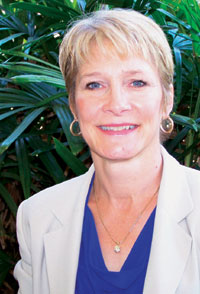Focusing on ‘Real Business’: Therese Tucker
- Company: Ro-Mac Lumber & Building Supply, Leesburg, Fla.
- Tenure with company: Seven years
- 2007 gross sales: More than $50 million
Leesburg, Fla.-based Ro-Mac Lumber & Building Supply CFO Therese Tucker didn’t come from inside the industry, but the Ohio native had a good feel for the products and the people who sell them. Her husband Bill is head of the Florida Building Material Association. A licensed CPA with a degree in accounting from Wright University outside of Dayton, Tucker had worked in the distribution industry and for eight years in the medical industry.
The transition to lumber was different, she says, “but lumber is a tangible product. You can see it, and feel it, and cost it. It’s all risk assessment in lumber.”
While Ro-Mac decided it did need the services a good CFO can supply, does every LBM company? Not necessarily, says Tucker. A business-savvy owner can shoulder the burden, she says, particularly “if you just bring in lumber and sell it.” The larger and more diverse a company grows, the greater the opportunities for failure, she says. That’s when adding a CFO can make financial sense.
“Say you add a manufacturing operation selling custom doors and a garage-door facility,” she says. “Someone has to deal with all those tasks. You’ve probably laid on a different layer of personnel and a different customer base, so you may have to deal with more credit risk, and you have a larger distribution area, and you’ve got to deal with insurance and liability.”
Tucker believes her value lies in her oversight of business functions, “the horrendous tasks that no one likes to do. I love these tasks. They are challenges, but they are the things that make other folks in the company just cringe,” she says.
“If you don’t have a manager that’s focused on business [rather than] on operations, you are going to miss an opportunity that’s really big,” she says, citing a group insurance plan as an example. “Most businesses have heard of a cafeteria plan, and they bring it on,” she says, but the Labor Department has specific regulations about when a person can come in and out of a plan. Sometimes small companies don’t know that and can unknowingly run afoul of the regulations. “If the Labor Department finds out, perhaps through an audit, it will cost you a lot of time and money to straighten it out, even if the Labor Department is lenient with you.”
“What gives me great satisfaction is to make it easier for the owner to sleep at night, and for the operations manager to focus on the real business of making sure the product and customer service is the best it can be,” she says.

